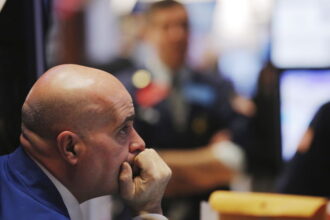Investing.com– Oil prices rose sharply in Asian trade on Thursday, with futures hitting an over one-year high on continued signs of tighter supply, while positive data from China also aided sentiment.
The signals helped markets largely look past concerns over higher-for-longer U.S. interest rates, following a string of hawkish comments from Federal Reserve officials.
U.S. inventory data showed that stockpiles shrank more than expected in the week to September 22. Data from China also spurred some optimism over an economic recovery in the world’s largest oil importer. China’s rose for the first time this year in August, helping trim a year-to-date slump in profits.
Focus is now on data from China, due later this week, for more cues on economic activity. Chinese fuel demand is also expected to increase during the week-long Autumn festival holiday, which begins on Friday.
jumped 1% to $95.23 a barrel, staying within sight of a 10-month high, while West Texas Intermediate crude futures surged 1.3% to $94.88 a barrel by 21:17 ET (1:17 GMT)- their strongest level since August 2022.
Shrinking US inventories feed tighter supply outlook
U.S. shrank by a bigger-than-expected 2.2 million barrels (mb) in the week to September 22, their fifth week of draws in the past seven.
The reading, which also showed a 0.9 mb drop in the Cushing, Oklahoma hub, indicated that oil supplies remained tight in the world’s largest fuel consumer.
This added to bets that global oil supplies will tighten further this year, especially after deep supply cuts from Russia and Saudi Arabia. Russia also banned most fuel exports this week, adding to expectations that global fuel markets will tighten.
Oil prices have rallied more than 30% in the last two months following the supply cuts, with analysts predicting that tighter supplies will keep crude trading between $90 and $100 for the remainder of the year.
US fuel demand cools, rate hike fears persist
Wednesday’s inventory data showed that U.S. and inventories unexpectedly grew in the past week, indicating that fuel demand was somewhat cooling with the end of the summer season.
The trend added to concerns that U.S. fuel demand will weaken further this year, especially as interest rates rise further and inflation remains sticky.
Hawkish signals from the Federal Reserve saw the scale 10-month highs this week, pointing to some pressure on oil markets. A stronger dollar makes crude more expensive for international buyers, somewhat denting demand.
Concerns over China also remained in play, especially as the country’s massive property market faces persistent headwinds from a worsening cash crunch and bankruptcies in its biggest developers.
Read the full article here










